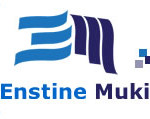Managing payroll is one of the most important yet complex responsibilities of running a business. It’s not just about cutting checks, it involves tax compliance, employee classification, benefits deductions, accurate recordkeeping, and meeting stringent federal and state deadlines. Errors in any of these areas can lead to penalties, legal trouble, or employee dissatisfaction.
Because of these high stakes, more businesses are turning to external payroll providers to handle their payroll processes with precision, efficiency, and legal accuracy. But not all payroll solutions are created equal. Choosing the right provider can make the difference between streamlined success and costly setbacks.
Understand Your Payment Structure and Frequency
Before selecting a provider, business owners should have a clear understanding of how they plan to pay their workforce. Some companies operate on traditional bi-weekly or monthly pay cycles, while others require greater flexibility for those managing contract or hourly workers. If your business model relies on paying workers frequently, such as same-day or next-day wages, ensure the provider can support daily payroll operations. This is particularly relevant for staffing agencies, hospitality groups, or gig-based platforms that rely on high-volume, fast-turnaround labor. Not every provider offers the infrastructure or compliance framework to handle accelerated pay schedules, so asking the right questions upfront is key.
Consider how bonuses, commissions, reimbursements, or shift differentials are processed. The provider should be able to customize pay structures without errors or delays that impact morale or trust.
Evaluate Integration With Your Existing Systems
The best payroll providers offer more than just paycheck delivery, they seamlessly integrate with your existing accounting, time-tracking, and human resource systems. Whether you’re using platforms like QuickBooks, ADP, or proprietary software, the payroll system should support data syncing that reduces duplicate entries and manual errors.
Integration helps automate tax calculations, hours worked, overtime tracking, and PTO balances, making compliance easier and freeing up time for HR teams to focus on strategy rather than repetitive data input. Be wary of providers that require manual uploads or lack compatibility with your current tech stack, as this can create bottlenecks and errors down the line.
Assess how the provider handles user permissions, dashboard accessibility, and reporting. Robust integration often includes custom reports for management and finance teams, which can support budgeting and workforce planning decisions.
Confirm Tax Compliance and Filing Support
Payroll isn’t just about paying employees, it involves navigating complex tax obligations. Mistakes in filing payroll taxes can result in hefty fines, audits, or worse. Your provider should guarantee full tax compliance across all levels: federal, state, and local.
Ask about their process for handling quarterly and annual filings, issuing W-2s and 1099s, and managing unemployment insurance. A reliable provider will automate these tasks and stay up to date with evolving tax laws so you don’t have to.
It’s important to understand who holds responsibility in the event of an error. Some providers offer tax penalty guarantees, while others place the burden on the business. Make sure the service-level agreement clearly outlines these responsibilities so there are no surprises.
Assess Customer Support and Service Reliability
Even with the most advanced platforms, questions or issues are inevitable. That’s why responsive and knowledgeable customer support is crucial. You’ll want a provider that offers multiple support channels, phone, chat, and email, and guarantees reasonable response times.
Look for payroll services that assign dedicated account managers or offer concierge-style support if your business is scaling or operates across multiple locations. Having someone familiar with your account ensures faster troubleshooting and better recommendations tailored to your company’s needs.
Investigate the provider’s service track record. Frequent downtime, missed pay cycles, or delays in resolving issues can significantly disrupt your operations. Request client references or review case studies to understand how the provider handles service disruptions or urgent needs.
Know What You’re Paying For
Price should never be the only factor when choosing a payroll provider, but transparency about fees is critical. Some providers charge per employee per month, others per payroll run, and some may tack on extra fees for things like year-end tax filings, direct deposit, or garnishment processing.
Make sure to compare base pricing and the cost of add-ons. A low upfront rate may balloon quickly once essential features are included. Ideally, choose a provider that offers scalable pricing so your costs remain predictable as your team grows.
Pay attention to contract terms and cancellation policies. Long-term contracts with stiff early termination fees can become a liability if the provider doesn’t meet expectations. Flexibility and clarity in the contract can give you room to adapt as your business needs evolve.
Choosing a payroll provider is a strategic decision that impacts your financial health, compliance status, and employee satisfaction. Businesses should look beyond the marketing and evaluate how well the provider aligns with their pay structure, integrates with internal systems, manages compliance, and supports both employees and HR teams. Taking the time to assess these critical factors ensures your payroll process is not just functional, but future-ready.

